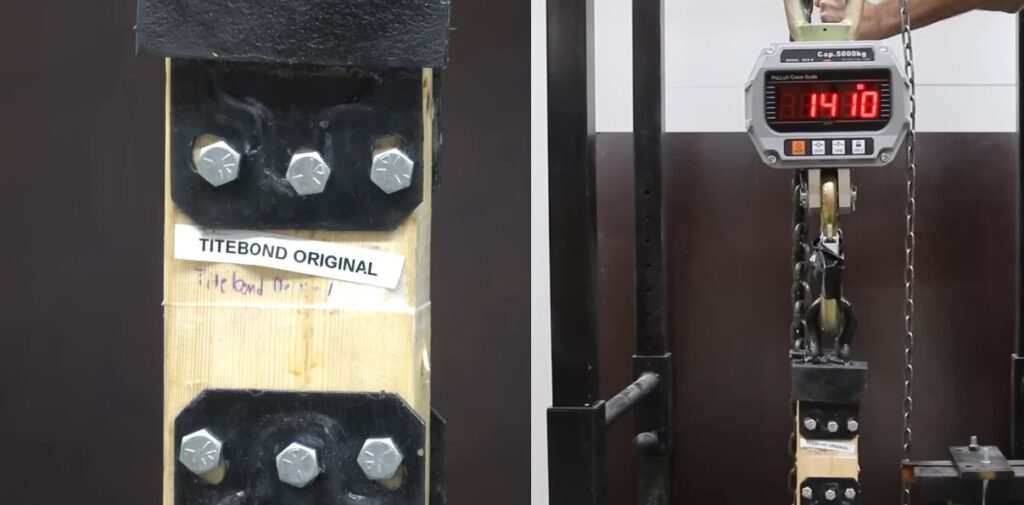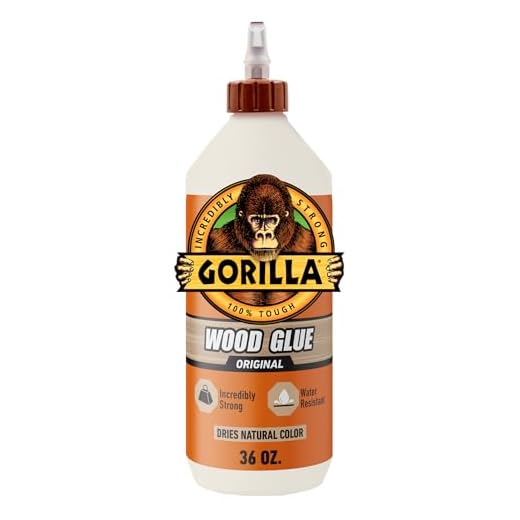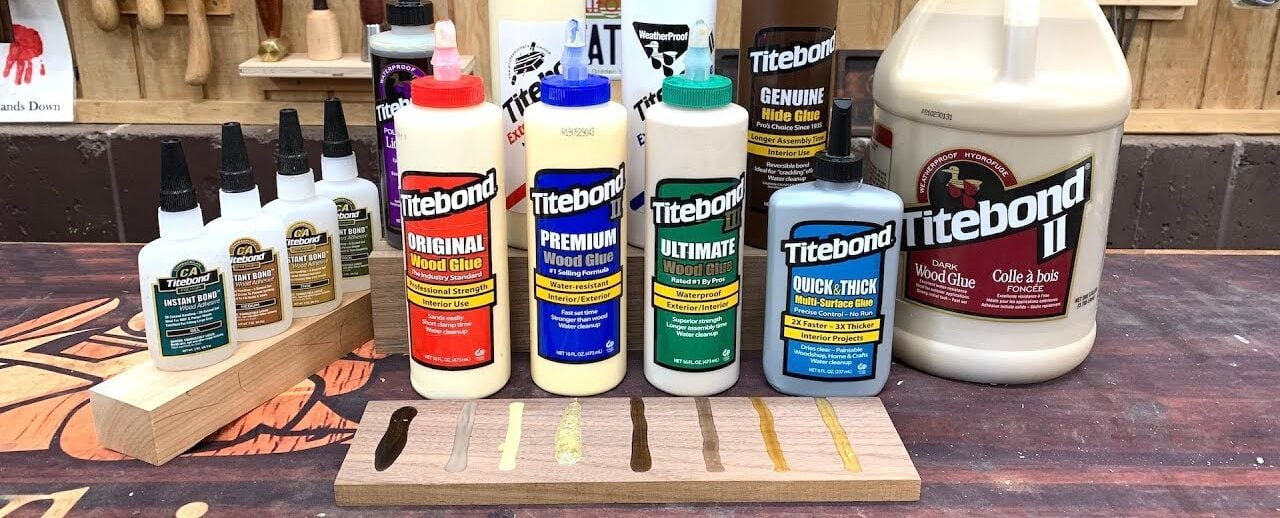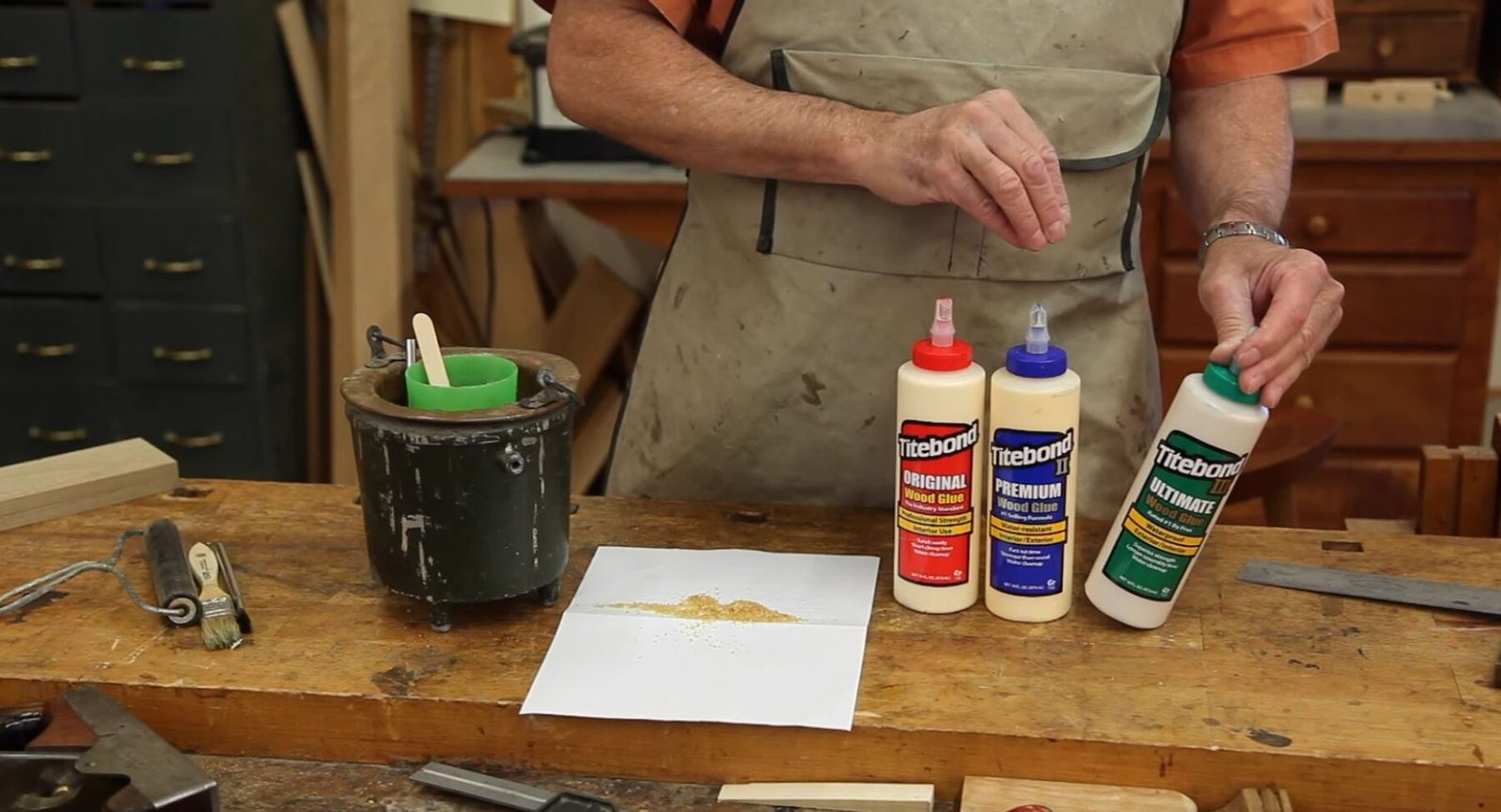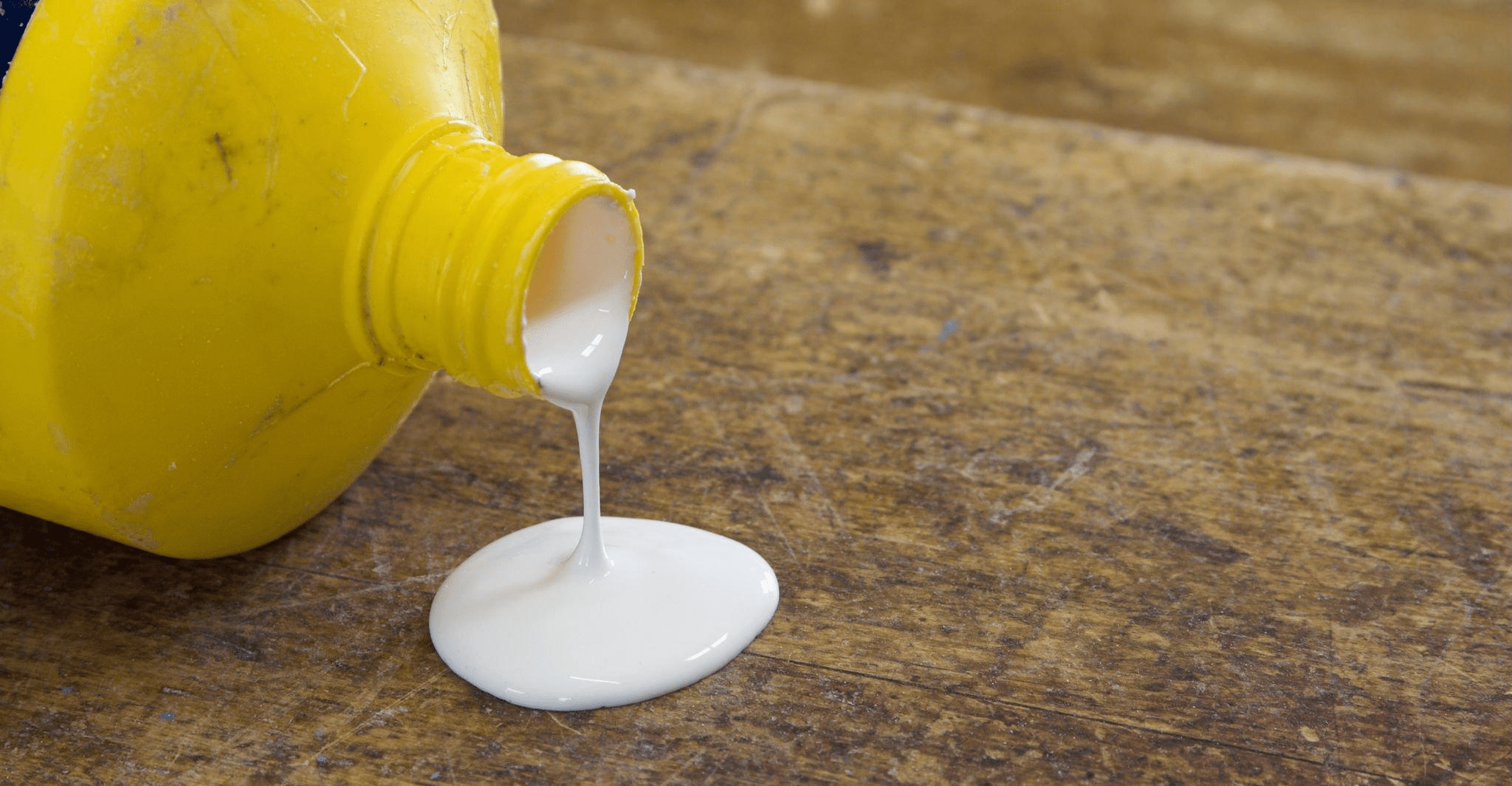Are all wood glues essentially the same or should you spend a little more money for the best or ultimate glue? In this article, we’ll examine a number of different brands to determine which ones are actually that much superior to the competition.
PVA glue is likely the strongest wood glue you can use. Since it depends on the wood, the joint, the wood’s orientation, whether it is inside or outside, and many other factors, we say probably. PVA glue is regarded as one of the strongest glue types because it typically reacts better than most other glues in most situations.
Knowing the different types of glue available will help you select the best glue for your woodworking projects. While some wood glues cure more slowly than others, some act quickly. A strong bond or a failed glue joint can really depend on the type of wood glue you use for your project. For more information on the different types of glue, check out: How to use Wood Glue – Everything you need to know to picking and applying wood glue.
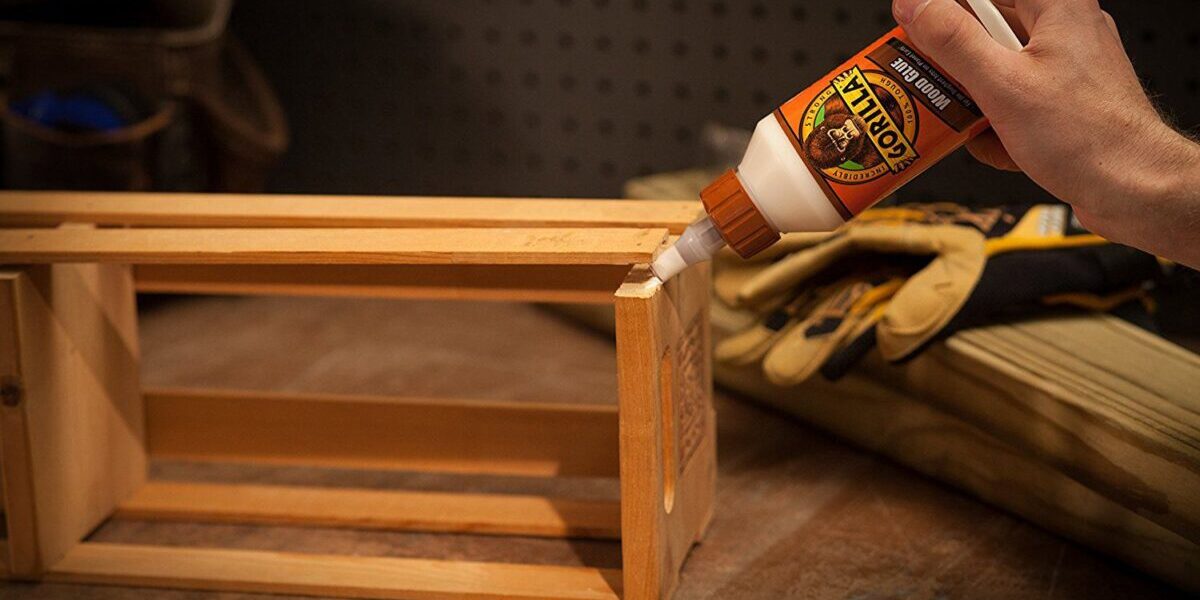
Table of Contents
Wood Glue Strength Test
A test was carried out by YouTube Channel Project Farm to test the adhesive strength of some of the most popular wood glues on the market. Among the brands tested was Titebond, Elmer’s, Gorilla Glue and also normal flex glue to see if it could hold up to the wood glues.
The test was performed by cutting two by fours into eight inch pieces then cutting each board into two pieces and joining them back together with the different glues. In order to get maximum clamping force, drywall screws were used on all pieces and the glue was left to cure for 28 hours. The screws were then removed and the glued together pieces was subjected to force from a pulling rig with a crane scale.
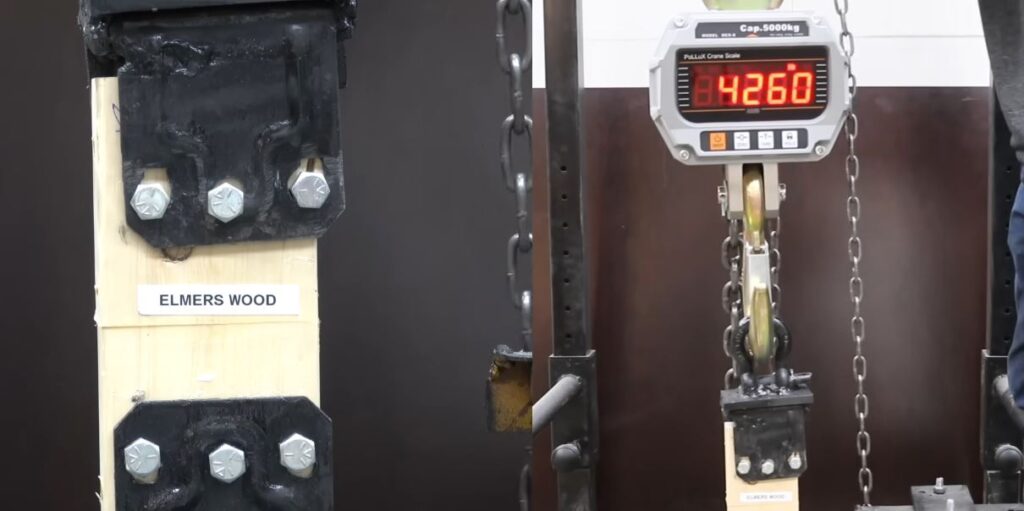
The wood glues in the test can be seen below:
- Titebond Original
- Titebond II
- Titebond III
- Elmer’s Wood Glue Max
- Elmer’s Craft Glue
- Elmer’s Original Wood Glue
- Gorilla Wood Glue
- Flex Glue
Here is the breakdown of the results to help you make the best decision for your upcoming woodworking or DIY project.
What wood glue has the best tensile strength?
For the tensile strength test, the glue that performed the best was Elmers Wood glue. However, Both Titebond 3 and 2 was not far behind. All the glues performed extremely well in this test apart from the Flex Glue, showing right away that a glue specifically designed for wood is crucial when working with wood.
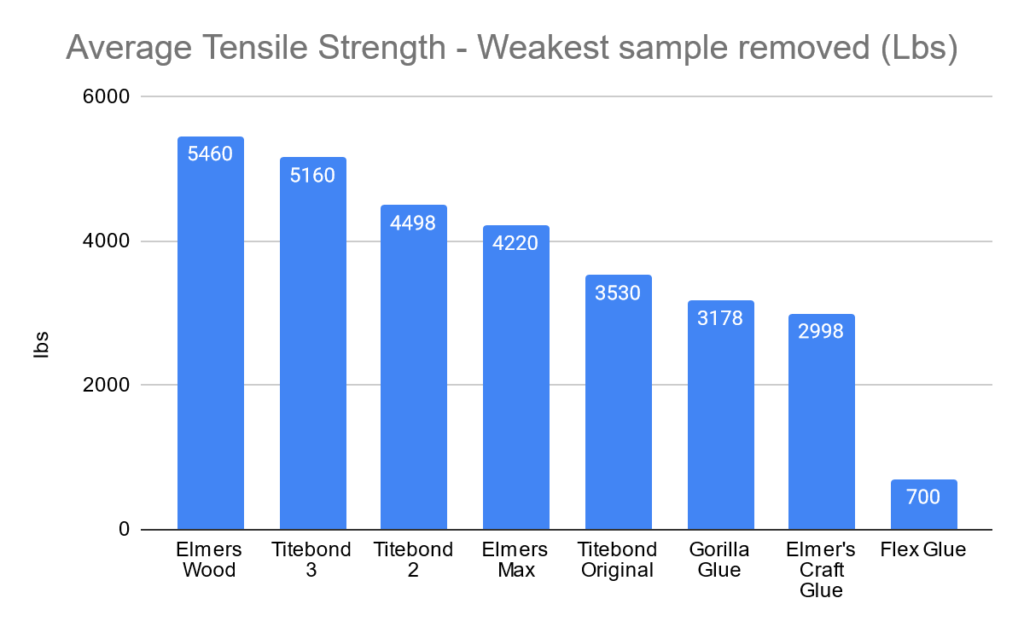
Which brand of wood glue has the highest shear strength?
For the shear strength test, an end piece was glued to the end grain of the other and then held in place by a metal rig. For the Shear strength test, results were similar to the initial test. With Elemer’s Max coming out on top, with Titebond 3 and 2 following closely.

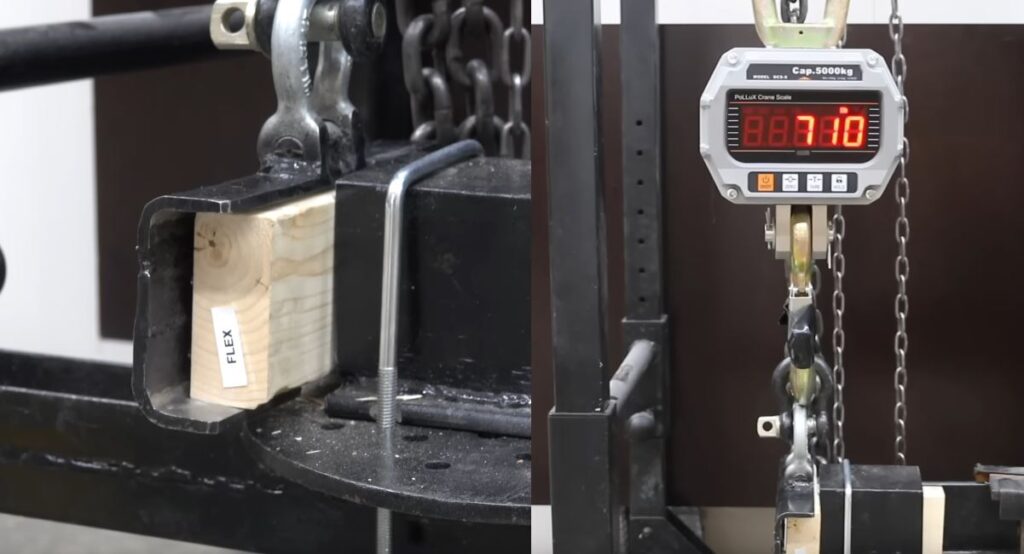
What is the best waterproof Wood Glue
To test which wood glue has the best tensile strength after being exposed to water, the glued together wood pieces were left soaking, fully submerged in water for 24 hours. The glued together wood were subjected to the same test as for the initial tensile strength test.
Best performing glue here was by far the Titebond 3 and Elmer’s Max which both are labeled as waterproof glues.
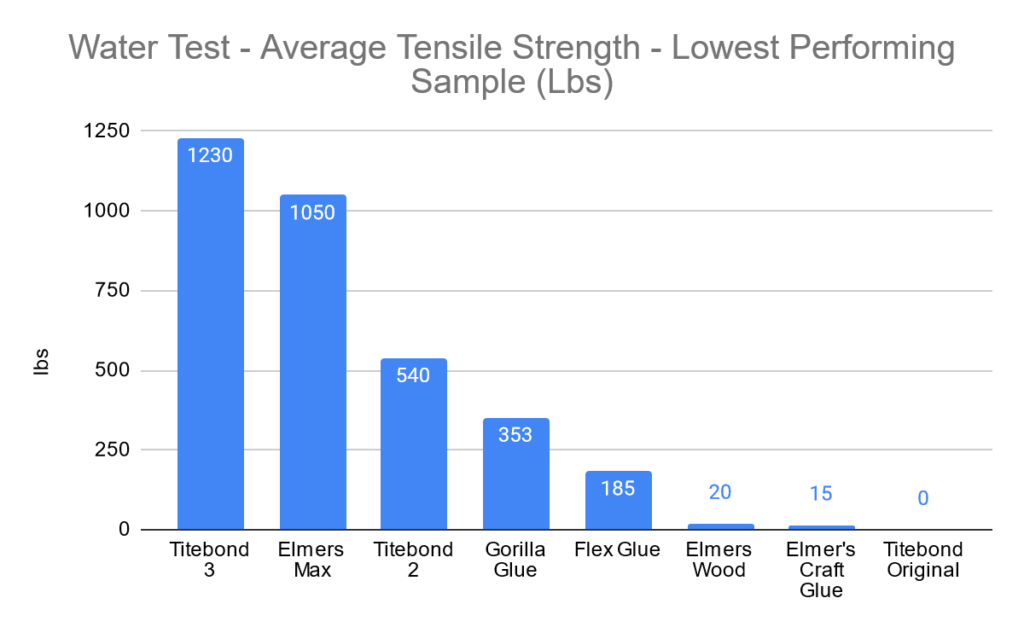
Wood Glue Test Summary
All of the glues in the test before very well and with some impressive numbers, with that being said best glues in form of adhesive strength seems to be Titebond 2 and 3. For continued water exposure best performing ones were Titebond 3 or Elmer’s Max. Unsurprisingly, Flex Glue performed worst in almost every category.
Full test video can be seen below:
What to consider when choosing Wood Glue
We can tell which glue has the highest pure adhesive strength based on the results of this test. There are, however, other factors to consider when selecting wood glue. The project, the wood used, whether it will be used inside or outside, cure and dry times, and a variety of other factors all play a role in determining the best wood glue for your project. Here are some considerations to make when choosing the best wood glue for your project.
Adhesive Power
Wood glues can vary in terms of the amount of adhesive strength they provide. There is a variety of glue on the market that can bond two pieces of wood together in either a permanent or temporary fashion.
Viscosity
CA and epoxy are just two examples of the many kinds of glue available, each of which comes in a different range of viscosities. You have the option of using a thinner glue to fill in cracks, depending on the severity of the damage, or a thicker glue, which will not penetrate the wood as far.
Storage and Shelf Life
Some glues, such as hiding glue in crystal form, can be stored for an extended period of time. Some PVAs and other glues have a six-month shelf life. If CA glue and epoxies are not opened, they can be stored for a very long time. The shelf life of most glues is listed on the bottle, but hot and cold temperatures can also affect glue. A glue joint that has passed its expiration date will not be as strong as it once was. Buying less glue to avoid wasting it by throwing it away frequently is a wise decision. For more info on how expired glue and how to best store it, read https://woodwaker.com/wp-admin/post.php?post=1944&action=edit.
Drying Period
Unlike PVA and epoxy glues, which can take up to a week to fully cure, CA glue dries in seconds and can be used immediately after application. Even though CA glue dries much faster than other types of glue, this does not automatically make it the better choice for all woodworking projects. You may need to use glues with longer curing times on occasion to ensure that your joints are as strong as possible.
